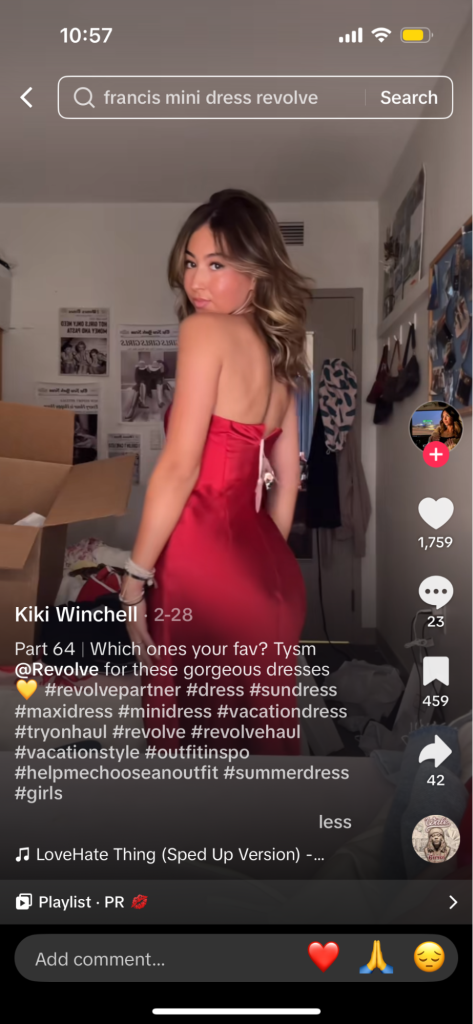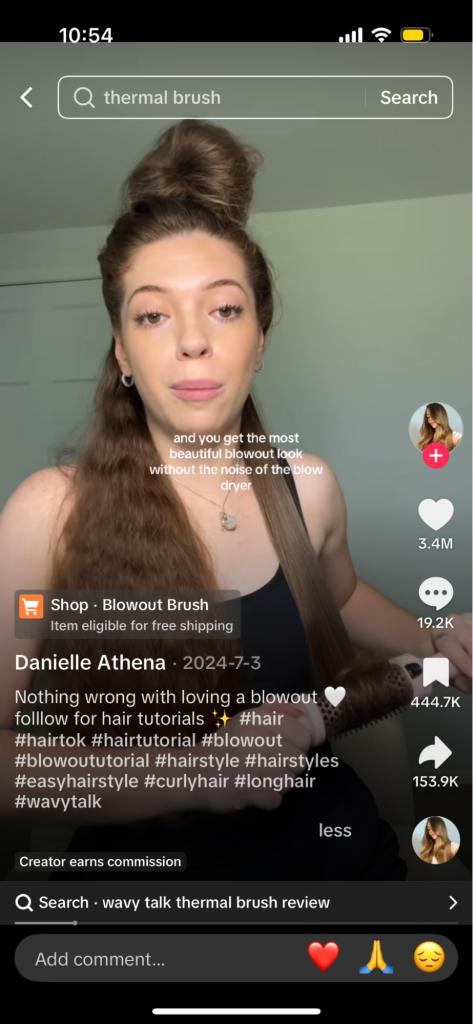Featured image by MART PRODUCTION
Influencer marketing is booming, expected to reach $33 billion globally. It’s a space where everyone from budding influencers to major brands is looking to cash in (and yes, NISM even offers a webinar on influencer marketing basics!). But behind every #ad and affiliate link lies a legal layer that many marketers overlook: FTC compliance.
Even well-established, big brands are susceptible to noncompliance. Recently, top brands like Revolve and Alo Yoga have found themselves in hot water for deceptive marketing practices regarding endorsements and social media affiliates.
Whether you’re a brand collaborating with influencers or a content creator sharing your favorite products, you’re participating in a form of advertising. And that means U.S. law applies, especially the FTC’s Endorsement Guidelines. In this blog, we’ll break down what the FTC requires and how to stay on the right side of the law when it comes to endorsements, affiliate links, and sponsored content.
Why Disclosure Matters
The Federal Trade Commission (FTC) enforces truth-in-advertising laws. If a social media post includes an endorsement or recommendation, and there’s any kind of connection between the creator and the brand, that relationship must be disclosed clearly and conspicuously.
These “material connections” include:
- Payment
- Free or discounted products
- Business, family, or employment relationships
- Other perks (like early access, sweepstakes entries, or paid trips)
The point? Transparency. Consumers have the right to know when they’re being advertised to, and undisclosed partnerships, no matter how small, can be deceptive.
Quick Guide: How and When to Disclose
WHEN to disclose:
- Any time there’s a material connection between you and the brand.
- Even if you weren’t asked to post, but received a free item.
- On all platforms where your content appears, including livestreams or Instagram Stories.
- When tagging, pinning, or liking content from a brand you’re affiliated with.
HOW to disclose:
- Place the disclosure in the content, not buried in profiles, comment sections, or “more” links.
- Use plain language: “Sponsored by [Brand],” “Thanks to [Brand] for the free product,” or “#ad” are all acceptable.
- Avoid vague terms like “spon,” “collab,” or “ambassador” without clarification.
- Make sure disclosures are readable, visible, and appear early in the post.
Example of a good disclosure: “Thanks to NISM for the free product! #ad”
Example of a bad disclosure: Hidden in a sea of hashtags or only visible if you click “read more.”
What Counts as an Endorsement?
According to the FTC, endorsements include any message a consumer might reasonably believe reflects someone’s honest opinion or experience, even if that person is paid.
Endorsements can appear in:
- Written reviews
- Videos
- Social media tags or images
- Livestreams
- Blog posts
- Affiliate links
Even subtle signs of enjoyment (like smiling or continued use in a video) can be interpreted as endorsements if a brand partnership is involved.
If your content reflects an experience with a product you didn’t have, or you falsely claim results, you’re crossing the line into deceptive advertising.
Key Responsibilities
For Influencers:
- Disclose clearly and truthfully.
- Don’t endorse products you haven’t used.
- Don’t make claims that require scientific proof unless you’ve seen the evidence.
For Brands:
- Educate influencers on disclosure requirements.
- Monitor influencer content for compliance.
- Take corrective action when disclosures are missing or misleading.
Failure to disclose isn’t just risky for influencers. Noncompliant brands and agencies can be held liable, too.
Affiliate Links and Reviews
If you earn a commission from affiliate links or review products provided by a brand, this must be disclosed. Even if you’re not paid per post, the potential for financial gain still counts as a material connection.
Example:
“I earn a small commission if you buy through my link—thanks for supporting the blog!”
Also, avoid manipulating review sections. Deleting only negative reviews or labeling one as “most helpful” without consumer votes can be considered deceptive.
Children and Disclosures
Endorsements targeting children receive heightened scrutiny. Since kids are less able to detect advertising, the FTC may investigate practices that would otherwise be considered acceptable for adult audiences.
Common Mistakes to Avoid
- Thinking platform tools are enough. Don’t rely solely on built-in tags like “Paid Partnership.” Always supplement with your own clear language.
- Placing disclosures at the end. Many users won’t scroll or finish videos. Place disclosures at the top or as overlays throughout.
- Using stock photos. If you’re sharing testimonials, use actual consumers or disclose when images are illustrative.
- Assuming familiarity. Just because your followers know you work with a brand doesn’t mean you can skip the disclosure.
Final Thoughts
The FTC isn’t out to punish ethical marketers. It’s there to protect consumers. If your practices are transparent, honest, and well-documented, you’re already on the right track.
If you want to dive deeper, NISM’s Compliance and Governance textbook includes a full chapter dedicated to FTC regulations, perfect for social media professionals looking to expand their knowledge and stay compliant.
Transparency is not just a legal requirement: it’s the foundation of trust in influencer marketing. By following these guidelines, both influencers and brands can create authentic, effective, and ethical campaigns that benefit all parties involved.
Disclaimer: The information provided in this blog is for educational purposes only and should not be interpreted as legal advice. Regulations may vary by industry, platform, and location. For specific guidance on FTC compliance, always consult your organization’s legal counsel.
Author Bio:
Kassity Lee was a 2025 Social Media Strategist Intern at the National Institute for Social Media. A senior at Southern Illinois University Carbondale, Kassity is a dual Marketing and Journalism major with a specialization in Advertising. Kassity is passionate about marketing strategy and utilizing the power of human truths to craft effective campaigns. In her free time, Kassity can be found hanging out with her cat Bug, playing video games, and occasionally catching a local basement show with her friends. You can find her on LinkedIn here.





0 Comments